Ukraine’s women are showing the world what real bravery looks like
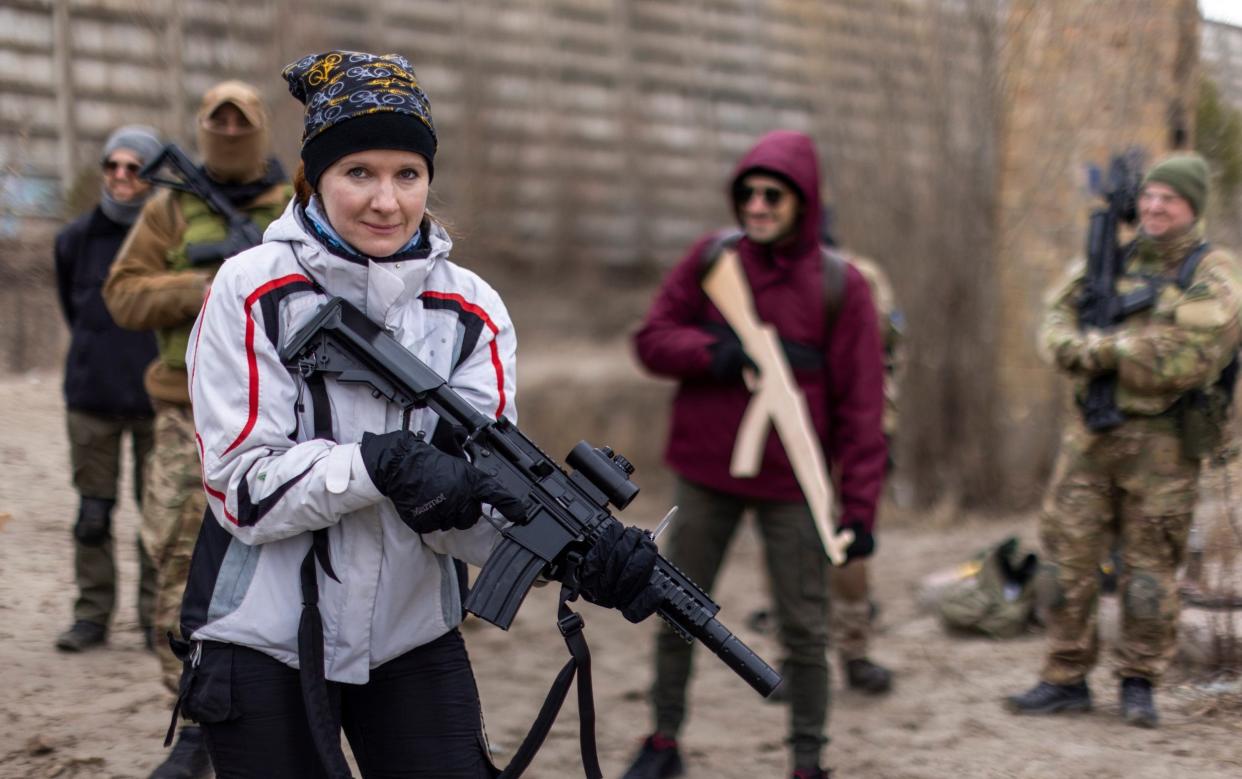
Kira Rudik is in a car heading to the northwestern border of Kyiv. Along with the “resistance group” she has assembled over the past two weeks, she is going to collect as many refugees as possible from the outskirts of the capital and drive them to relative safety inside the city.
A number of civilians (including at least two children, according to reports) were killed at the weekend when Russian mortar shells hit a bridge that people were using to try to flee the town of Irpin, a quiet suburb of Kyiv. “People are trying to get into Kyiv so we are going there to try to get as many people as possible,” says Rudik, now about 10 minutes out from the edge of the city.
Rudik, 36, is a Ukrainian MP. When Putin was making his calculations about this war he didn’t count on the number of women like her who would stay to defend their homes.
“That’s why we’re standing so strong,” she says. “We need to be protecting our land. It’s still surreal for me that I would have to leave my home that I love, that I built, that I cared about, that I picked out napkins for. Why would I leave? I want to be able to defend it.”
Today, on International Women’s Day, the world is watching the women of Ukraine, one of the few countries in the world which has made it a public holiday. Last year, women marched through the streets of Kyiv calling for gender equality. This year, the streets of the capital are a very different place.
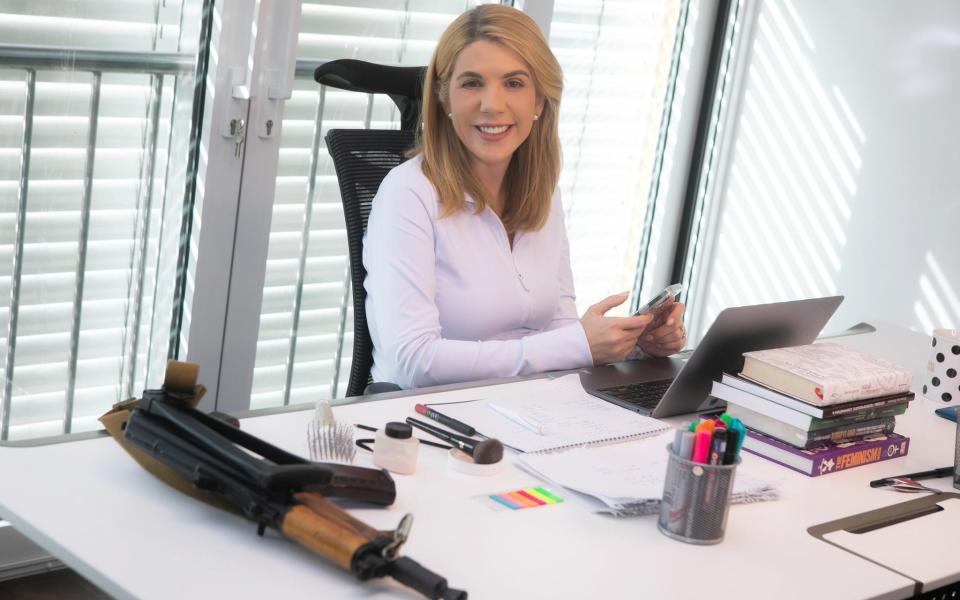
More than one million people have fled across the border since the war began, most of them women and children. But women are also playing a vital role in the grassroots movements resisting Putin’s advances. Many have joined the army, others have formed localised resistance groups helping out in whatever way they can, delivering weapons and medical supplies, helping to get displaced people to safety and distributing food.
Vasylyna Duman, 35, is helping to deliver equipment and weapons to the Ukrainian military. In her normal life, she is a journalist and social media manager. “I am one of the cogs in the machine,” she tells me over Facebook Messenger from Kyiv.
“I have friends in Poland and the Czech Republic, who collect money and things, and buy equipment. Others arrange cross-border delivery, or delivery across Ukraine. My task is to keep in touch with the military here in Kyiv. I help to find drivers who are ready to deliver goods and bring them to the right place.”
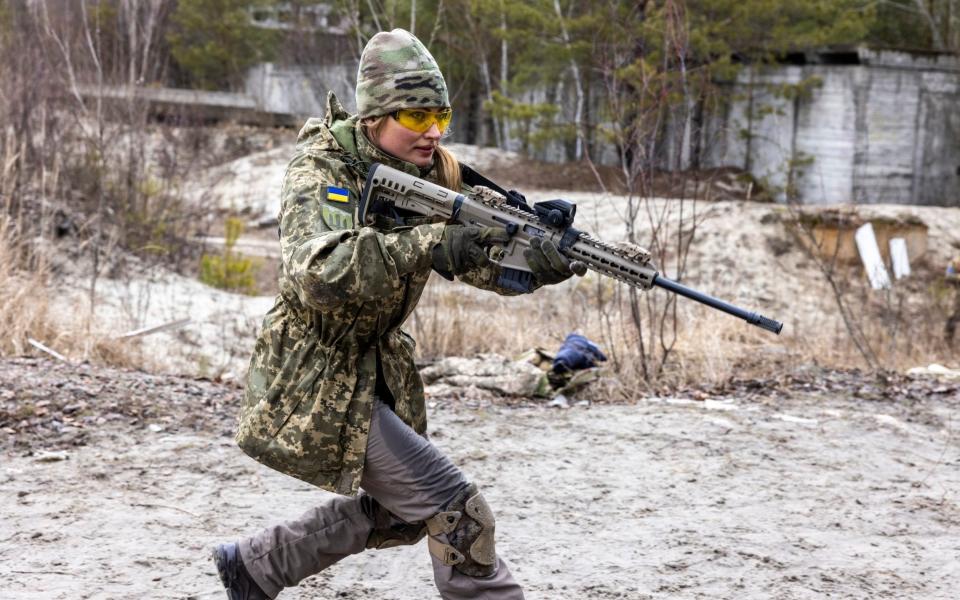
Nadiyka Sukha, 25, has been delivering medical supplies around the city. She was working as a PR manager before the war. Now, she spends her days speaking to people all over Europe trying to get painkillers, antibiotics and antiseptic delivered to Kyiv, where she and her friends get it to whichever charity needs it most that day.
“We receive requests from volunteers, from defenders,” she tells me. “We try to find different medicines and deliver it by car to volunteer staff or defenders.”
Sukha lives alone with her cat, as her boyfriend is away fighting – you must be worried about him, I say. “Of course,” she replies. “But I am confident, he is a good soldier.”
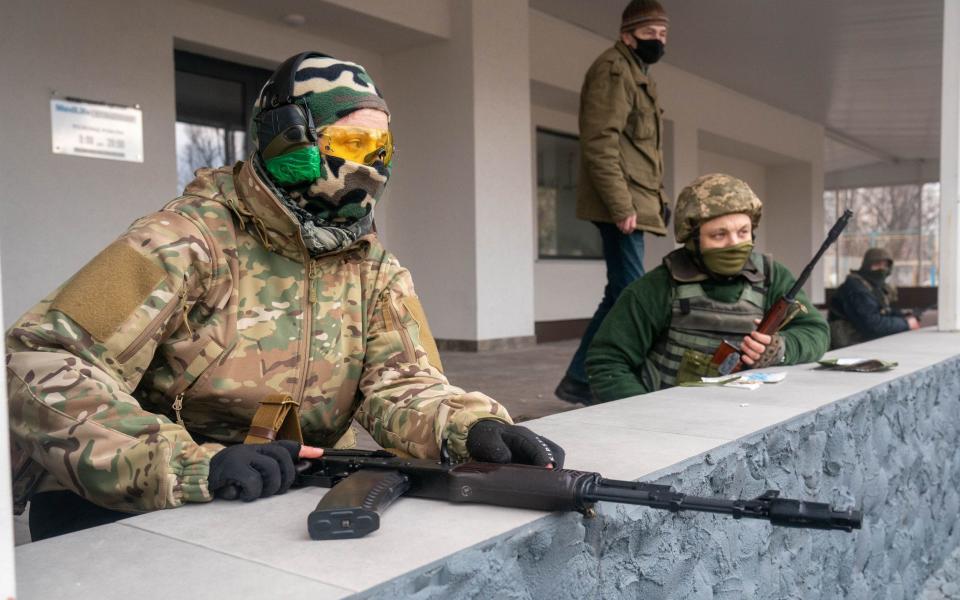
Ukrainian First Lady Olena Zelenska says the Ukrainian ground resistance has “a particularly female face”, partly because Ukraine has two million more women than men. Posting on Instagram this week, she paid tribute to the women of Ukraine, saying she “admires” and “bows” to her “incredible compatriots”.
“To those who heal, save, feed... And those who continue to do their usual jobs – in pharmacies, shops, on transport, in utilities, so that life lasts and wins,” she wrote. “To those who take children to shelters every day without panic and entertain them with games and cartoons to save children’s consciousness from war. To those who give birth in bomb shelters.”
You don’t have to look much further than Ukrainian women’s magazines to understand how drastically life has changed. They now offer advice on how to give birth underground or register a baby in the midst of a war, with instructions to chop off acrylic nails so that you could hold a weapon if you needed to.
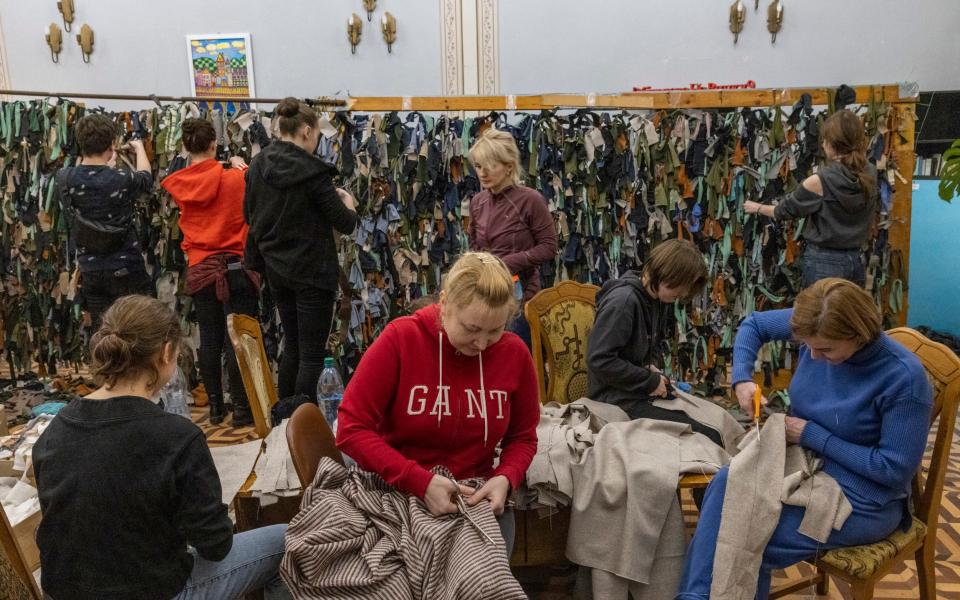
Rudik has been learning how to use a Kalashnikov. “After 12 days of war and training, I’m much better,” she says. “I’m getting ready.”
After all, she adds, “the bullets won’t be caring who is firing them. So this is what I have to do.”
She may have greater cause than most – she is on Putin’s kill list. “It’s good to be on some lists,” she jokes. “I’m also on the Ukrainian bachelorette list so I hope these two lists even themselves out.”
Rudik now works from early in the morning until late into the night: “Then we go to sleep and it’s usually a very short sleep.” She continues, “There is shelling every single day and we have to go to the bomb shelters.”
Tina Peresunko, 39, is a scientist and a writer. She has “never used a weapon” but found herself buying a small Stanley knife in a local shop. She decided to stay in Kyiv in solidarity with Ukrainian troops.
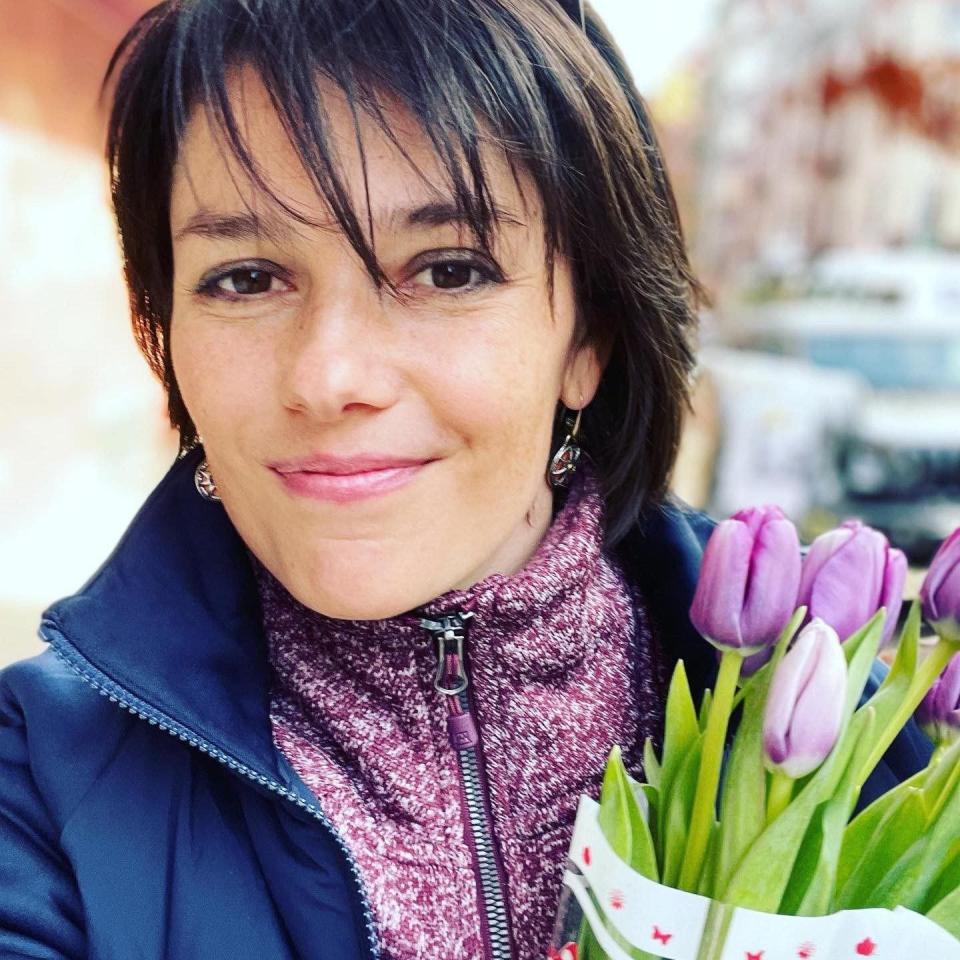
Peresunko lives with her husband (along with a friend who moved in with them as her flat was in too dangerous an area) near the Kyiv television tower and had to quickly get underground when it was shelled.
Her brother recently moved his two daughters out of the city before coming back to fight. Peresunko knows she could have left too, “but I feel this is my city, this is my country, I’m Ukrainian, so…”
The first few days were “very scary”, she admits. “We were in shock. Psychological and physical.” Nevertheless, she is planning to stay in Kyiv and keep on working. She is writing a book and is determined the war is not going to get in the way.
For many, it’s as Oleksandra Matviichuk describes the situation: “We have no time for scary.” Matviichuk is a human rights lawyer and head of the Center for Civil Liberties in Kyiv. She has been documenting war crimes since 2014.
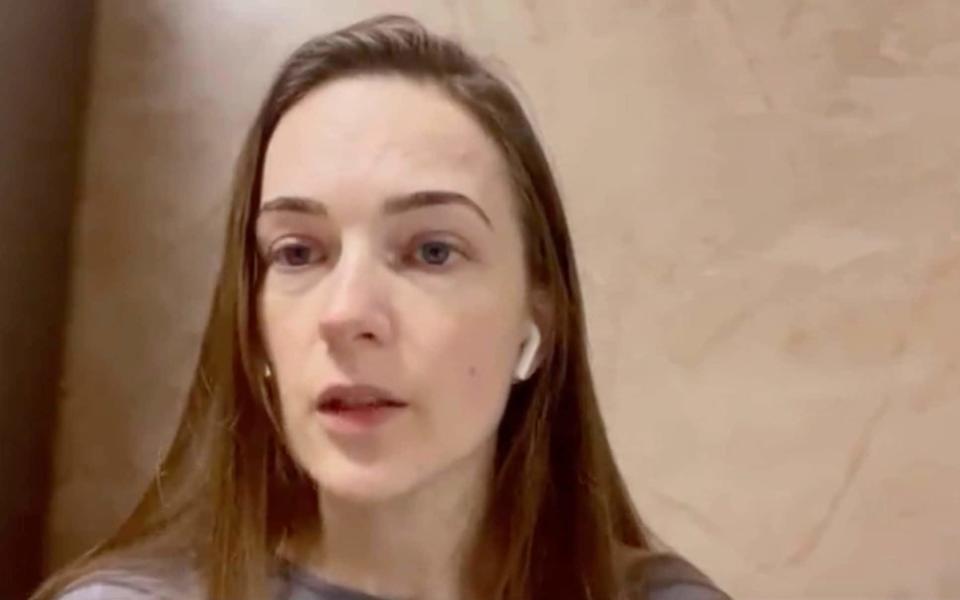
Both day and night, she is taking testimonies of people who have witnessed the shelling of civilians. So how is she coping?
“For sure, I have concerns about my security, but now it’s not secure, not only for me but for everyone in Kyiv,” says Matviichuk. “There are a lot of people who I love who stayed and I also remain.”


